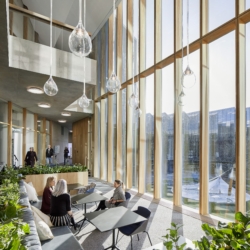February 7, 2024
Half of UK businesses expect 2024 to be easier than 2023
 UK businesses are hopeful for 2024 according to new research from Pleo. The CFO’s Playbook for 2024, which polled over +500 UK financial decision makers, found that almost 50 percent of UK businesses believe 2024 will be “easier” than 2023 (vs. 35 percent believing it will be harder and 15 percent anticipating that it will be the same as last year). As such, with a waning concern around inflation – a 20 percent decrease since 2023 – businesses are targeting more ambitious goals. Nearly three quarters are prioritising cash growth, and while this was also the primary objective of businesses last year, findings show a 163 percent increase in British businesses focussed on this ambition. (more…)
UK businesses are hopeful for 2024 according to new research from Pleo. The CFO’s Playbook for 2024, which polled over +500 UK financial decision makers, found that almost 50 percent of UK businesses believe 2024 will be “easier” than 2023 (vs. 35 percent believing it will be harder and 15 percent anticipating that it will be the same as last year). As such, with a waning concern around inflation – a 20 percent decrease since 2023 – businesses are targeting more ambitious goals. Nearly three quarters are prioritising cash growth, and while this was also the primary objective of businesses last year, findings show a 163 percent increase in British businesses focussed on this ambition. (more…)















![Gallup has published its 2023 Gallup Global Emotions report [registration] – a study of employee sentiment in the UK workforce](https://workplaceinsight.net/wp-content/uploads/2023/11/frustration-7505960_1280-250x250.png)

 A new poll of workplace leaders suggests there is an environment of unconscious fear in modern-day leadership, leading to toxic culture, stunted growth, performance and productivity, and decision inertia. The global study of 2,500 emerging leaders in corporate businesses by consultant
A new poll of workplace leaders suggests there is an environment of unconscious fear in modern-day leadership, leading to toxic culture, stunted growth, performance and productivity, and decision inertia. The global study of 2,500 emerging leaders in corporate businesses by consultant 















December 19, 2023
How employers should navigate the ICO’s guidance on monitoring workers
by Anthony Woolich and Michelle Chance • Comment, Technology